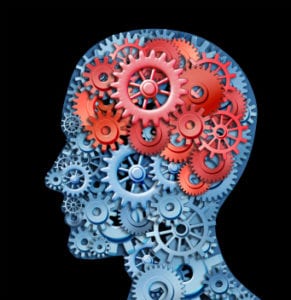Dissociative disorders are a category of mental illnesses characterized by an involuntary and unhealthy escape from reality through a disconnection between thoughts, identity, consciousness and memory. An estimated two percent of people experience some form of dissociative disorder, with women being more likely than men to be diagnosed.
Dissociative identity disorder (DID), formerly called multiple personality disorder, is one of three types of dissociative disorders defined by the Diagnostic and Statistical Manual of Mental Disorders (DSM).
What is Dissociation?
Dissociation is a mental process that causes a lack of connection in a person’s thoughts, memory and sense of identity. Dissociation exists in varying degrees of severity and the symptoms can be vaguely acknowledged and poorly recalled by those experiencing them.
Mild dissociation is similar to daydreaming, getting lost in a book or driving down a familiar stretch of road and realizing you do not remember the last several miles. Severe and more chronic forms of dissociation can affect consciousness, memory, identity, emotion, perception, body representation and behavior.
What are the Symptoms of Dissociation Disorders?
The symptoms of dissociative disorders range widely and can vary significantly from person to person. Many or most dissociative episodes are fleeting or do not cause significant distress or dysfunction, and therefore do not warrant a specific diagnosis.
However, mental health professionals recognize three main types of dissociative disorders, including dissociative amnesia, depersonalization disorder and dissociative identity disorder. Each disorder usually develops as a reaction to trauma and helps the affected person keep difficult memories at bay. Times of stress can temporarily worsen symptoms, making them more obvious. If untreated, dissociative disorders cause problems with functioning in everyday life.
Symptoms and signs of dissociative disorders depend on the type and severity, but may include:
- Feeling disconnected from yourself
- Problems handling intense emotions
- Sudden and unexpected shifts in mood
- Depression or anxiety problems, or both
- Feeling as though the world is distorted or not real (called derealisation)
- Memory problems not linked to physical injury or medical conditions
- Other cognitive (thought-related) problems, such as difficulty concentrating
- Significant memory lapses, such as forgetting important personal information
- Feeling compelled to behave in a certain way
- Identity confusion or behaving in a way that the person would normally find offensive or abhorrent
How is Dissociative Identity Disorder Different?
As one of the major types of dissociative disorder, dissociative identity disorder will share certain symptoms that are common with dissociation in general. But DID is characterized by severe lack of continuity with personal identity, which causes switching to alternate identities.
Those suffering from DID may feel the presence of one or more people talking or living inside their head, and may feel as though they’re possessed by other identities. Each of these identities may have a unique name, personal history and characteristics, including obvious differences in voice, gender, mannerisms and even such physical qualities as the need for eyeglasses. There also are differences in how familiar each identity is with the others.
Misdiagnosis of Dissociative Identity Disorder
According to Marlene Steinberg, the originator of the breakthrough diagnostic test for dissociative disorders, individuals with dissociative identity disorder are frequently misdiagnosed for many years, delaying effective treatment.
Steinberg also points out that those suffering from dissociative identity disorder often seek treatment for a variety of other problems including depression, mood swings, difficulty concentrating, memory lapses, alcohol or drug abuse, temper outbursts and even hearing voices or psychotic symptoms. If a person doesn’t understand the root cause of their symptoms or if the right questions aren’t asked during assessment, incorrect diagnosis may result.
Because dissociative symptoms are typically hidden and difficult to identify, it is important to see a mental health professional that is familiar with recent advances in the ability to diagnose dissociative disorders through the use of scientifically valid diagnostic tests.











